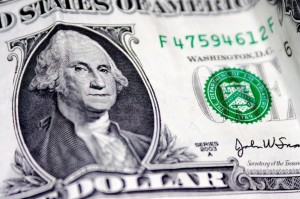Clean Energy Not A Means for Job Creation Today
As the United States finds itself mired in a lagging economy with a national unemployment rate stubbornly hovering above 9%, most pre-speech chatter figured President Obama would focus on job creation and economic recovery in his address. The recent appointment of Jeffrey Immelt, General Electric CEO, as the head of Obama’s new jobs council, seemed to signal too that the President’s focus would almost certainly be on jobs.
So it came as quite a surprise when the President made his way to the podium in the Congressional Chamber and started speaking about clean energy. He give top billing to clean energy and declared that research and development in the field is “our generation’s Sputnik moment” and a means to, among other things, create jobs. Millions of Americans from Wall Street to Main Street and cul-de-sacs in between are unemployed and the best idea the President has is to throw taxpayer money at a sector which can offer, at best, limited returns?
Sinking gobs of money into an industry that requires, by its nature, huge government subsidies and which already has numerous – and for that matter, better – substitutes is not a means of stimulating job creation in the near term. Perhaps the United States will, in fact, become a global leader in clean energy someday in the future. But, while achieving the 80% renewables mark set forth by Obama in his speech could be considered by some to be today’s Space Race, it will have zero immediate impact for the average unemployed American.
Rather, what the U.S. economy needs now is a re-energizing of its powerful consumer base. Such a re-ignition of dynamic American consumerism will come from only one place – reducing the nation’s unemployment rate. To reduce unemployment, employers need to begin hiring in significant numbers again, but they won’t hire workers unless they can do so profitably. If Barack Obama is truly concerned about creating jobs for average Americans right now he will spearhead the effort to cut the US Corporate Tax rate. Combined Federal and State Corporate Taxes exceed 50% for major firms; U.S. rates are exceeded only by Japan, a dubious distinction given Japan’s well-documented economic malaise.
If employers keep more of their own money they will be apt to spend more on both labor and capital. New employees will then have money to spend on all sorts of discretionary purchases, thus increasing profits for those selling purchase items, enabling the cycle to perpetuate itself. Multiplied out across the entire country, the resulting economic boost is gigantic. Employers, employees, and local governments will all benefit from a Corporate Tax cut, and most importantly, new jobs will be created right now.
This, of course, is not to say that President Obama didn’t mention cutting the corporate tax at all – he did mention it. But he mentioned it after spending more than half his speech on clean energy, education, high speed rail, and high speed internet, and immediately before discussing his openness to altering the healthcare act, which, judging from the past, won’t happen, a federal spending freeze, which, also judging from the past, won’t happen, and a lame joke about salmon regulation. You know what that means.

